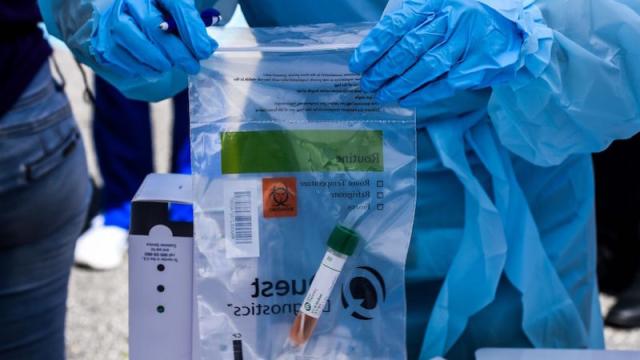Over the past few weeks, one comforting idea that people recovered from covid-19, the disease caused by the novel coronavirus, could think about was that they would probably not get it again. However, the World Health Organisation (WHO) contradicted that assumption this week.
On Friday, the WHO published a scientific brief in which it stated that there “is currently no evidence” that people who had recovered from covid-19 and have antibodies are protected from a second infection. The brief aimed to explain WHO’s position on the so-called “immunity passports” or “risk-free certificates” being considered by some governments during the covid-19 pandemic.
[referenced url=” thumb=” title=” excerpt=”]
In order to obtain a passport or certificate, individuals would need to have antibodies for SARS-CoV-2, the official name of the novel coronavirus. These documents would allow people to travel or go back to work based on the assumption that they are protected against re-infection.
Nonetheless, the WHO stated that to date no study has evaluated whether the presence of antibodies to SARS-CoV-2 provides immunity. In terms of antibodies, the WHO said that laboratory tests to detect SARS-CoV-2 antibodies “need further validation to determine their accuracy and reliability.”
It added that at this point in the pandemic, there was not enough evidence about the effectiveness of antibody-mediated immunity to guarantee the accuracy of a passport or certificate.
“People who assume that they are immune to a second infection because they have received a positive test result may ignore public health advice. The use of such certificates may therefore increase the risks of continued transmission,” the WHO said in the brief.
Chile became the first country to announce the use of “immunity cards” for people who had recovered from covid-19. Per CNN, the program had been scheduled to launch this week but has been postponed and will instead roll out in the coming days. The idea for immunity certificates has also been floated in Germany and the UK.
The WHO’s announcement is not free from criticism. Some in the medical community have said that the agency is unnecessarily scaring people by saying there is an absence of evidence for immunity.
[referenced url=” thumb=” title=” excerpt=”]
“Patients who fully recover from a viral infection are TYPICALLY immune. Immunity may last for months or years; that varies,” said Dr. Faheem Younous, the chief of infectious diseases at the University of Maryland Upper Chesapeake Health, on Twitter. “Absence of evidence is not evidence of absence. Let’s not scare people. Unnecessarily.”
There have been various concerns over covid-19 immunity recently. Earlier this month, WHO began investigating an alarming situation in South Korea, where more than 150 people who have recovered from covid-19 have tested positive again. Health authorities in the country have stated that the most likely possibility is that the virus had “reactivated” in patients’ systems, although there is no definite answer as of yet.
